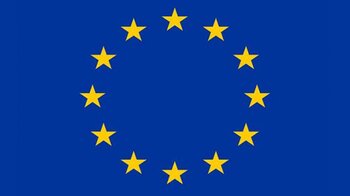June, 2022 - EU adopts sixth package of sanctions against Russia
On 3rd June, 2022, the EU decided to adopt a sixth package of sanctions against Russia and Belarus. The relevant legislation implementing this latest package of sanctions can be found here.
Of particular relevance to Members will be the ban on the import of Russian oil into the EU, and the prohibition on insurance for the transport of Russian oil to third countries.
A summary of some of the restrictions most relevant to our Members follows below.
Oil import restrictions
The EU has agreed an embargo on the imports of crude oil and refined oil products from Russia. The sanctions have immediate effect (subject to certain wind-down provisions), with the intention being to phase out Russian oil imports over the coming months.
The restrictions include:
- A prohibition on the import by sea of crude oil from Russia to the EU, with a transitory period of six months for existing contracts and spot transactions; and
- A prohibition on the import from Russia of refined petroleum products to the EU after a transitory period of eight months for existing contracts and spot transactions.
In addition and importantly, there are the following reporting obligations for any pre-existing contract or spot transactions:
- For reliance on pre-existing contracts, the underlying transactions must have been reported to the relevant Member states by 24th June, 2022; and
- For “one-off transactions for near-term delivery” (i.e. spot transactions), all aspects of the transaction, including transportation, should be reported to the relevant Member state within 10 days of its completion.
There is still uncertainty regarding the practicalities surrounding the reporting obligations, including who is required to report, and the country to which the report should be made if there are multiple EU countries or nationals involved.
Due to its geographical locations, Bulgaria has been granted a temporary derogation (until the end of 2024), and as such will be able to continue to import crude oil and petroleum products via sea. Croatia has also been permitted to import Russian vacuum gas oil, which is needed for the functioning of its refinery, until the end of 2023. Additional temporary derogations may be granted by national authorities if the supply of crude oil by pipeline to a landlocked Member State is interrupted.
Exemptions are also in place for those Member States which have a particular pipeline dependency on Russia (for example, landlocked countries such as Hungary), and those countries will have a temporary exemption to receive crude oil by pipeline for the time being.
After a transitory period of eight months, however, Member States importing Russian crude oil and petroleum products via pipeline will no longer be able to resell these products to other Member States or third countries.
Oil transport services and insurance
There will be an immediate prohibition on EU operators and entities from providing any new insurance or finance contracts for the transport (particularly by sea) of Russian oil to third countries. A wind-down period of six months (until 5th December, 2022) will apply in order to close out any existing contracts executed before 4th June, 2022.
As for imports into the EU, the restrictions on insurance will largely mirror the wind-down timelines and specific exceptions as set out in the section above (see Oil Import Restrictions).
The UK government is expected to bring in similar requirements this week. This will result in the majority of the international tanker fleet being unable to transport Russian oil going forward, and will have a significant impact on Russia’s oil industry.
Removal from SWIFT
Three additional Russian banks have been removed from the SWIFT system as follows:
- Sberbank (although this is not an asset freeze like in the US or UK);
- Credit Bank of Moscow; and
- Russian Agricultural Bank.
Export restrictions
The list of advanced technology items which are banned from export from Russia has been expanded to include additional chemicals such as fentanyl which could be used to manufacture chemical weapons.
In addition to the above, an additional 65 individuals and 18 entities have been listed and are subject to restrictive measures, further broadcasting suspensions have been introduced for three Russian state outlets, and additional restrictions have been put into place in respect of trusts and business services such as tax advice and accounting services. More details of these restrictions can be found in the relevant legislation.
Members are reminded that EU sanctions apply within the territory of the European Union; on board any ship under the jurisdiction of an EU Member State; to any person inside or outside the territory of the EU who is a national of a Member State; to any legal person, entity or body, inside or outside the territory of the EU, which is incorporated or constituted under the law of a Member State and to any legal person, entity or body in respect of any business done in whole or in part within the EU. We urge Members to frequently review the sanctions position when dealing with any country where sanctions are applicable as the position may change rapidly.
As always, if Members have any questions in relation to the above issues they are invited to contact the Club for further information.
